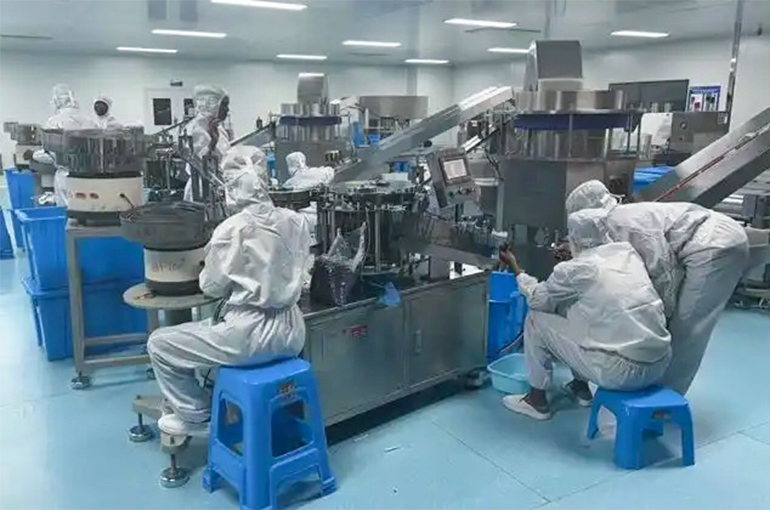 Tiankang's 'Made in Africa' Syringes Gain WHO's Quality Assurance
Tiankang's 'Made in Africa' Syringes Gain WHO's Quality Assurance(Yicai) March 4 -- Tiankang Medical Technology has become China’s first syringe manufacturer to receive quality verification from the World Health Organization.
Tiankang’s auto-disable syringe factory in Rwanda, East Africa, obtained WHO prequalification late last year. This certification enables governments and organizations, including UNICEF, to procure high-quality medical products. Bai Jinkun, general manager of the Anhui province-based company, spoke with Yicai about its localization strategy.
Africa’s routine immunization programs generate massive demand for disposable syringes, with Sub-Saharan Africa alone requiring 500 million units annually. The Rwanda plant has an annual capacity of 300 million syringes, producing 200,000 to 500,000 units daily to meet UNICEF’s needs, Bai told Yicai.
According to the Africa Centres for Disease Control and Prevention, 70 to 90 percent of Africa’s drugs and medical equipment are imported, with vaccine imports reaching as high as 99 percent. Syringes have traditionally been sourced from Asian manufacturers, with shipping times averaging three to four months.
Localized Production
African nations and international organizations are advocating for local production, but manufacturers face challenges related to logistics and workforce development.
Bai noted that weak local supply chains require the import of raw materials from China, and local workers need specialized training. Despite these challenges, Tiankang’s Rwanda facility has begun production, with output dedicated to immunization programs across the continent.
The decision to establish local manufacturing was driven by demand. Tiankang has supplied UNICEF for nearly a decade, and the UN agency has long supported local production, given Africa’s 1.4 billion population and significant market potential.
However, localization comes with added costs. Transporting materials from a Kenyan port to the Rwanda factory takes more than 10 days as shipments travel 1,500 kilometers by truck. Bai explained that land freight costs twice as much as shipping from China to Kenya. Moreover, producing a single syringe requires more than 100 different materials. If any components are damaged, emergency shipments from China are necessary to prevent production delays.
The factory hires local workers with no prior experience, training them through a structured program. Chinese experts train 50 candidates per batch, retaining about 10 employees after three rounds of screening. Salaries are two to three times the local average. The facility currently employs 60 workers, with plans to expand to 150-200 employees as production increases.
Editor: Emmi Laine